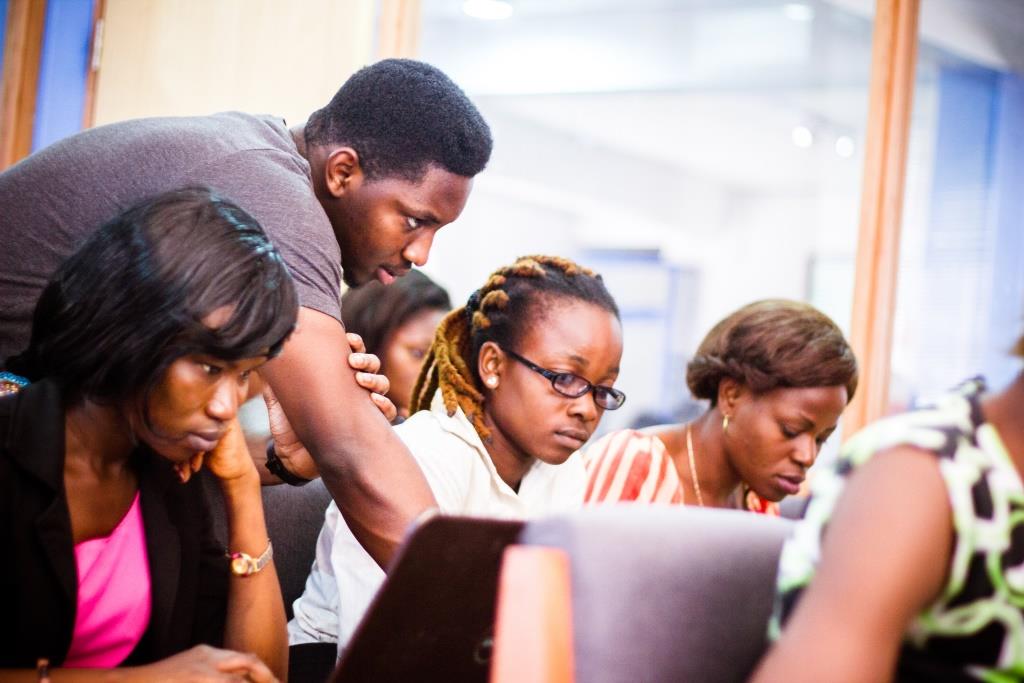#AttitudeChange – Growing Others
Africa has a significant and very well-documented infrastructure deficit. The accepted statistical measure of the size of this deficit estimates the construction & repair bill at $90bn p.a. over ten years i.e. $900bn spread over 2013 – 2023. Less well-documented is the more detrimental human capital deficit: the under-availability of skilled workers and managers in pretty much every economic sector we could mention (including, funnily enough, construction). Infrastructure is a more concrete problem to get to grips with: civil engineers, surveyors and project financiers can create cost estimates and project plans to build bridges and dams with comparative ease and acceptable degrees of certainty. Financial modellers can create realistic revenue projections to demonstrate a clear path to investment returns. In other words, infrastructure projects are bankable. The challenge for Africa is then straightforward: we solve the infrastructure deficit by turning more and more infrastructure challenges into bankable projects. Easier said than done, I know, but the mission is clear.
It appears we do not yet have that clarity when it comes to solving the human capital conundrum. “Build more schools”, “donate more books, mobile phones and tablets” seem to be the popular panacea. In other words, educate more children and improve the quality of their education. This is a very, very essential truth. But it does little to address the deficit. Looking at the levels of youth unemployment across the continent, this approach – used on its own – will have the undesired effect of increasing the average literacy and numeracy rates among the growing ranks of the young and jobless. Tomorrow’s jobless Africans will be far more capable of calculating and articulating the odds against their finding gainful employment than their present day counterparts.
The human capital deficit problem actually begins where formal education ends. How do we turn bright, eager young minds into highly skilled members of the African workforce? Here lies the real challenge.
“Our universities are sub-standard and the graduates they produce just don’t cut it in the workplace”
If the statement above seems familiar to you, especially if that is because you yourself have uttered words to that effect, I have a newsflash for you: there is NO country in the world that turns out graduates who are ready to be net contributors in the work place from day one (or even month one, for that matter). Surveys of employers in the UK repeatedly inform interested readers that UK graduates arrive at companies not equipped to deliver what these companies need of them. I think it is a safe assertion to make that very few countries have a tertiary education system superior to that of the UK, yet even its lauded academic institutions don’t produce “plug and play” workers.
The reality is that a university education is not designed to equip a graduate with everything he or she needs to deliver in the work place. I’d argue that completing an undergraduate degree is comparable to having a shower before a night out – while the shower is a useful (for most, integral) part of the preparation, it is only one part of the process. You still have to apply your make-up, trim your goatee, put on the appropriate attire, knot your tie / tie your gélé and dab some perfume behind your ears. Only after all this, and several checks in the mirror, do you feel ready to leave your home. Preparing fresh graduates for work is exactly the same: they need re-orienting for life as employees, they need skills training specific to the industry/company/job function, they need proper indoctrination into the company’s work culture and their progress and learning needs to be tested regularly by an experienced superior before they are “ready to leave home” i.e. let loose on live customers and/or projects.
A graduate with a first class law degree from Cambridge University will go through a year at law school and a further two years as a trainee at a law firm before actually becoming a solicitor. An Economics graduate from Harvard will join JP Morgan on a graduate training programme where she will spend months working in different parts of the bank to learn as much of the business as possible before she settles in to the actual job she was hired for. If that job involves client interaction, she will also have to study for and pass a variety of regulatory exams. Across Europe, most engineering degrees now include a one-year placement with an engineering firm or in the engineering department of some other corporate – this is a sensible reaction to the realisation that the theoretical academic education is insufficient preparation for life as an engineer. With the new model, engineering students get to see how the things they’ve learned at university are applied in the real world before going back for a final one to two years where their approach to studying can be better geared towards the realities that await them as workers. The medical profession places even more exacting training requirements on its graduates before they become doctors or nurses.
What is my point?
The best companies in the world all recognise that providing training for their new employees is an integral part of their success. It is true at all levels of an organisation but especially so at the graduate level, that firms hire people for their potential to do an excellent job. To ensure that this potential is realised, the firm owes it to itself to provide an enabling framework to help ALL employees (new and old) learn what they need for success in their role. More African companies need to embrace this philosophy. The #AttitudeChange I am advocating is for the development of a Training Culture in all African companies. While this is especially important at graduate and other entry-level positions within a firm, a Training Culture should be prevalent throughout an organisation – no employee, including the CEO or owner, is ever too old or too knowledgeable to improve through learning.
I often use sporting analogies to demonstrate my points. Take Lionel Messi and Cristiano Ronaldo, (almost) universally recognised as the two best soccer players on the planet. Their elevated status notwithstanding, these two “workers” train everyday just as hard as, sometimes harder, than they did when they were fresh-faced teenagers breaking into their respective first teams. They spend hours practicing and repeating skills that they mastered long ago. They talk to their coaches and teammates about new techniques or ideas to help them elevate their performances even higher. They discuss the most up-to-date training and diet plans with their fitness trainers and nutritionists to ensure their bodies are able to achieve and sustain peak condition season after gruelling season.
If Messi and Ronaldo, two of the best to ever grace their sport, still see the need to sharpen and augment their skills daily, why would you think that sending your staff on an annual two-day training course is sufficient to get them performing at their peak? It is not by accident that the teams and businesses that place greatest emphasis on training and employee development are the teams and businesses that are found at or near the top of their sports and industries year after year.
Andela recruits taking part in the 4-month training program: http://www.wired.com/2014/12/andela/
#AttitudeChange. Leaders of African businesses need to develop Winning Attitudes. Winning leaders place greatest emphasis on empowering all their staff to perform to the best of their ability. I repeat, ALL their staff. Lewis Hamilton would not have won the last Formula One Championship if the mechanic in charge of changing the left rear tyre on his Mercedes was not as well trained and did not take as much pride in his work as Lewis himself.
Well-trained employees do their jobs with great efficiency and minimum fuss. They face fewer frustrations and are thus happier in their work. You know it makes sense.
I end with two quotes from men who know a thing or two about the power of training:
Starbucks is not an advertiser; people think we are a great marketing company, but in fact we spend very little money on marketing and more money on training our people than advertising.”
Howard Schultz
“Before you are a leader, success is all about growing yourself. When you become a leader, success is all about growing others.”
Jack Welch



Sorry, the comment form is closed at this time.